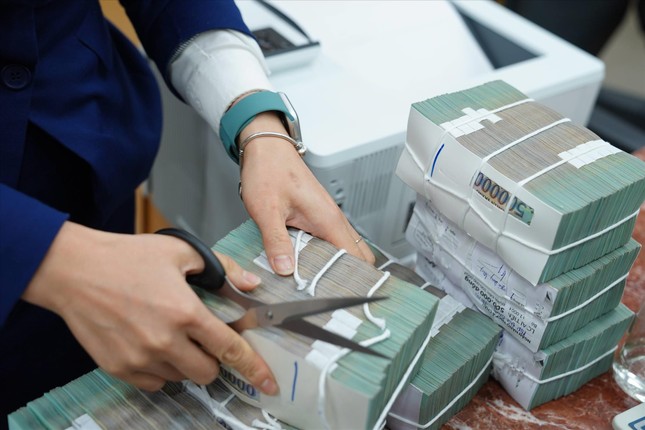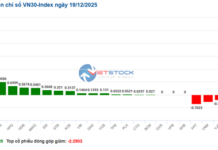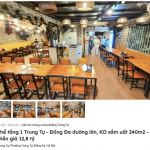The Oriental Commercial Joint Stock Bank (OCB) has revealed its list of shareholders owning 1% or more of its charter capital, totaling 80.6% of its capital. Aozora Bank, a foreign investor, holds over 15%, while the remaining 55.7% is owned by 12 other organizations, including Ben Thanh Group, Binh An House Investment JSC, and Greenwave Capital JSC. As for individual shareholders, Chairman Trinh Van Tuan and his family hold 18.6%.
Vietnam International Commercial Joint Stock Bank (VIB) has 18 shareholders holding over 72% of its charter capital. The largest shareholder is Commonwealth Bank, with a stake of more than 19.8%. The remaining 53% is owned by 17 other shareholders, including 13 individuals and 4 domestic enterprises. VIB’s Chairman of the Board of Directors, Dang Khac Vy, and related parties hold a total of over 20%.
At Kienlong Commercial Joint Stock Bank (Kienlongbank), 21 shareholders, consisting of 16 individuals and 5 organizations, hold 71.3% of its charter capital. Individuals related to Vo Duc Thang, former Chairman of Kienlongbank, still hold a significant amount of shares. The bank also has a presence in the Sunshine Group. Other banks, such as An Binh Commercial Joint Stock Bank (ABBank), Vietnam Prosperity Joint Stock Commercial Bank (VPBank), and Vietnam Technological and Commercial Joint Stock Bank (Techcombank), have shareholders owning 1% or more of their charter capital.

Several banks have disclosed their lists of shareholders owning 1% or more of their charter capital. Photo: Nhu Y.
In the Big4 group (the four banks with state-owned capital), Vietnam Foreign Trade Joint Stock Commercial Bank (Vietcombank) and Vietnam Joint Stock Commercial Bank for Industry and Trade (VietinBank) have published their lists of shareholders owning over 1% of their capital. Vietcombank’s strategic partner, Mizuho Corporate Bank; LTD, holds 15%, while the Government of Singapore Investment Corporation (GIC) owns 1.67%. On the other hand, VietinBank’s top three institutional shareholders are MUFG Bank (19.7%), VietinBank Trade Union (1.15%), and Prudential Insurance (1.07%).
According to economic expert Dinh The Hien, the new regulation in the Law on Credit Institutions 2024, which mandates the disclosure of shareholders owning 1% or more of a bank’s charter capital, will enable public monitoring by the media, individual investors, funds, analysts, and others. However, this is just the tip of the iceberg. To truly bring bank cross-ownership into the light, only state authorities, with their management systems and monitoring tools, can uncover the full picture.
Mr. Hien noted the historical relationship between banks and real estate businesses, particularly during 2010-2012, when many banks faced restructuring and “zero-dong” equity issues. Cross-ownership between banks and real estate companies was a significant problem during that period. Even with tighter monitoring since then, as the real estate market recovered, the bank-real estate relationship has become more prominent again, with the emergence of “backyard” companies.
“While this poses a certain risk to the system, the state has the experience and improved regulations to address it. By making banks truly public companies, subject to proper supervision and management, we can prevent manipulation. The current legal framework is sufficient for authorities to monitor and regulate, as evidenced by measures such as reducing the maximum ownership ratio, limiting credit extensions, and restricting bond investments,” asserted Mr. Hien.
Attorney Truong Thanh Duc, from ANVI Law Firm, emphasized the necessity of transparency regarding shareholders owning 1% or more to prevent nominal holdings, disguised investments, cross-ownership, and potential bank manipulation.
Hải Hà Petro and Xuyên Việt Oil accumulate bad debts of over 11,000 billion dong
Not only did these two petroleum companies commit violations regarding the Price Stabilization Fund and massive tax debts, but they also have bad debts at banks amounting to tens of thousands of billion Vietnamese dong.









































